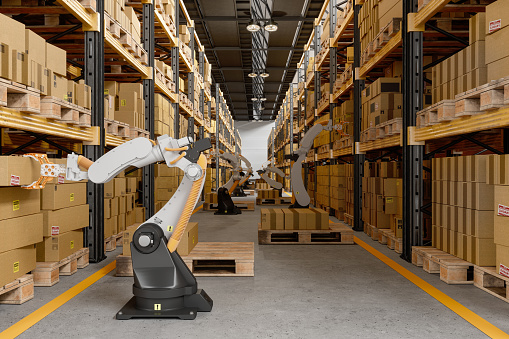
Intelligent Process Automation (IPA) is a component of the new wave of technologies that enable businesses to cut operating costs, enhance productivity, and deliver more positive customer and employee experiences. IPA is comprised of the combination of various Artificial Intelligence (Ai) technologies to rapidly and economically automate much of the end-to-end enterprise processes. The goal of IPA is to make a substantial dent in the growing gap between firms’ internal capacity to efficiently and reliably manage the day-to-day activities of their business.
Main Components:
Two of the main components of IPA are analytical process outsourcing and artificial intelligence (Ai)-based automation. A form of outsourcing, Analytic Process Outsourcing involves the process by which a firm recruits the services of an outside company to provide its products and/or services. By using the data and intelligence provided by the outside company, the inside firm can rapidly and efficiently deploy its own AIs and programs. By contrast, with AIs, firms are able to self-design and deploy their own artificially intelligent systems (AIs).
Human Administrative Tasks:
Within the broader context of Intelligent Process Automation, it has been proposed that artificially intelligent software systems can replace most, if not all, traditional administrative tasks such as scheduling, managing work staff, and resource allocation. IPA technology allows for the automation of unappreciated portions of most human administrative tasks such as data collection, analysis, and reporting. For example, by the use of AIs, human analysts may be replaced by computer systems that can quickly and accurately determine the value, scope, and impact of a particular work-related task. Similarly, because most traditional management processes are labor-intensive, more of the day-to-day activities performed in firms could be automated through the use of AIs.
Development of Computer Technologies:
In addition to serving as an industry term, the term “artificial intelligence” is now also frequently used in the academic and scientific communities. The field of artificial intelligence focuses on the research and development of computer technologies and other technologies that make possible the execution of activities, including machine learning, decision support, decision logic, and real-time processing. These technologies are designed to achieve goals, in a manner that is consistent with the natural behavior of humans and other complex systems, while maximizing the efficiency and productivity of any given set of inputs.
Artificial Intelligence:
As indicated earlier, in the broad context of intelligent process automation, it has been proposed that AIs can replace most, if not all, traditional administrative tasks, such as managing work staff, scheduling, assigning tasks, collecting data, analyzing data, and providing reports. In addition, it has been suggested that future artificially intelligent robotic processes may replace most human routine tasks, such as making food selections in restaurants, selecting office personnel, distributing products, and so forth. Artificial intelligence will likely impact nearly every field, as more tasks are effectively handled by computers.
Reduce the Overhead Costs:
While it is almost impossible to project what artificial intelligence systems will look like in the future, one thing is clear: businesses will be able to greatly reduce their overhead costs by using AIs to perform most or all of these previously mentioned activities. Not only will businesses save money by using AIs to perform routine tasks, but they may also find that they can expand their markets, hire new employees, and get better results from their existing workforce. This is because AIs can replace many traditional business functions. For example, data collection is much more efficient with ailments such as healthcare, finance, human resources, customer service, accounting, and retail, as well as any other business function that uses in-depth data on its clients and customers. Since AIs are able to extract, analyze, and transmit information in a highly efficient manner, traditional databases may become obsolete, if not disappear completely.
In today’s economic climate, businesses must become more efficient in order to remain competitive. This means that they must become more selective about which tasks they let be automated. Human workers are still necessary for performing simple tasks such as completing an entire report, proofreading a report, or updating a website. These tasks are too routine to be categorized as automated, so businesses must resort to AIs to handle them. By taking human emotion out of the equation, business owners are left with two important tasks: completing the task and keeping the program running smoothly. Traditional process automation does not allow for this type of control, which has led many businesses to turn to artificial intelligence to automate their businesses.
Streamline the Processes:
Beyond saving companies money on routine tasks that are currently performed by employees, companies who use AIs also benefit because they eliminate errors and wasted time. The benefits of using artificial intelligence for business processes extend beyond financial services. Businesses that embrace advanced technology are able to provide customers with a more personal experience, which can result in increased customer loyalty and repeat business. By incorporating intelligent process automation into their business strategy, companies reap the benefits of streamlining processes that traditionally have been a part of their business model for years, all while increasing their profitability.

